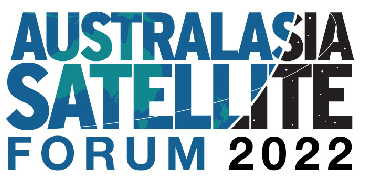|
Thales Alenia Space to provide
state-of-the-art Digital Processor for Korea’s
GEO-KOMPSAT-3 communications satellite
Madrid, January 31, 2022
Thales Alenia Space has signed a
contract with the South Korean aerospace manufacturer
and defense company, LIG Nex1 Co., Ltd., to provide a
state-of-the-art Digital Processor for the GEO-KOMPSAT[1]3
communications satellite.
Scheduled for launch in 2027,
GEO-KOMPSAT-3 (Geostationary Earth Orbit Korea
Multipurpose Satellite 3) is a multi-band communications
satellite that will provide broadband satellite
communication services in the Korean Peninsula and
surrounding maritime areas, ensuring service continuity
of COMS-1 satellite, currently in operations in-orbit.
In particular, it will support the Korea Coast Guard
satellite communications for national maritime rescue
and protection; secure stable information on monitoring
water disasters in mountains, rivers and dams to the
Ministry of Environment; and provide the Ministry of
Science and ICT with a satellite communication system
for emergency response to disaster situations, as well
as with an advanced testbed for domestic satellite
communication research activities.
In addition, GEO-KOMPSAT-3 will
also feature a Data Collection System (DCS) mission for
gathering and retransmitting environmental and water
related data; and a Satellite Based Augmentation System
(SBAS) mission for satellite navigation augmentation
service, particularly to support safe aircraft landing
approach operations with vertical guidance.
The Electronics and
Telecommunications Research Institute (ETRI) of Korea is
responsible for the satellite payloads, while the Korea
Aerospace Research Institute (KARI) is responsible for
the satellite platform.
State-of-the-art Digital Processor
The state-of-the-art, fully
reprogrammable Digital Processor is a core element of
the Ka-band Flexible Broadband Communication System
payload, combining both transparent and regenerative
signal processing by means of Digital Channelizer Units
(DCU) and On-Board Processing Units (OBPU) sections,
respectively.
DCU implement digital filtering and
switching functions with reconfigurable mapping of input
and output ports, channels and subchannels between
different satellite beams; while OBPU perform
demodulation, decoding, IP-based onboard switching,
encoding and modulation of the communication signals,
thus maximizing the efficient use of the satellite
capacity.
Thales Alenia Space in Spain is
responsible for the Digital Processor specification,
design, development, assembly, integration and test
(AIT) and delivery. Thales Alenia Space will also
support LIG Nex1 and ETRI at system engineering and AIT
level, in a co-engineering cooperation approach to
ensure smooth integration of the Digital Processor with
the nationally developed Ground Support Equipment and
Ground Segment.
The GEO-KOMPSAT-3 Digital Processor
relies on Thales Alenia Space’s PRODIGE product suite of
flight[1]proven
flexible RF digital processors for compact, digitally
processed, satellite communication payloads. This
software-defined, reconfigurable product family is based
on a scalable, modular design readily adaptable to
different customer needs and frequency bands.
SAVE THE DATE -
Australasia Satellite Forum 2022

14 & 15 June 2022
|